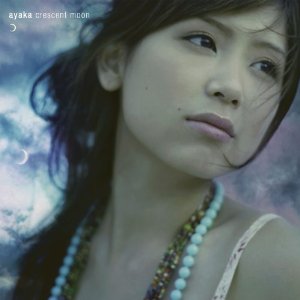Related Research Articles

Japanese singer Ayumi Hamasaki has released seventeen studio albums, five compilation albums, twenty-six remix albums, four live albums and numerous singles and promotional singles. She debuted in 1995 under Nippon Columbia with the stage name Ayumi, releasing an extended play Nothing from Nothing, which was a collaboration with Dohzi-T and DJ Bass. Three years later, Hamasaki debuted again as a singer under Avex Trax with the single "Poker Face" (1998). Her first album A Song for ×× (1999) debuted at number one on Oricon's albums chart, and sold over 1.4 million copies.
The solo discography of Ringo Sheena features seven studio albums, five compilation albums, two extended plays and twenty-three singles. These were released on the Toshiba EMI sublabel East World from 1998 to 2000, before Shiina moved to the Virgin Music sub-label. In April 2013, EMI Music Japan was absorbed into Universal Music Japan, meaning all releases since 2013 have been on the new EMI R sub-label of Universal.

The discography of Japanese R&B singer Misia consists of nine studio albums, three compilation albums, one extended play (EP), one live album, six remix albums, twenty-six singles, twelve promotional singles, eighteen video albums and thirty-seven music videos. In 1997, Misia signed a recording contract with BMG Japan and joined the then up-and-coming talent agency, Rhythmedia. Under the sub-label Arista Japan, Misia released her first single, "Tsutsumikomu Yō ni..." in February 1998, followed by "Hi no Ataru Basho" in May. In June, her debut album, Mother Father Brother Sister, opened at number three on the Oricon chart. The album peaked at number one three weeks later and stayed in the top five for eleven consecutive weeks. Mother Father Brother Sister was certified double million and won a Japan Record Award for Best Album, as well as a Japan Gold Disc Award for Pop Album of the Year. In 2000, Misia's second studio album, Love Is the Message, debuted at number one and was certified double million. It won a Japan Record Award for Best Album and a Japan Gold Disc Award for Pop Album of the Year. The album spawned three top ten hits: "Believe," "Wasurenai Hibi" and "Sweetness." Misia's first remix album, Misia Remix 2000 Little Tokyo, was released three months later and shot to number one. It sold over 800,000 copies and is the second best-selling remix album of all time in Japan.

"Mikazuki" is the fourth single from Ayaka, released on September 27, 2006.
The discography of Ayaka consists of six studio albums, two compilation albums, a cover album and numerous singles, released through Warner between 2006 and 2009, and through Ayaka's independent label, A Station, from 2012 onwards.

"Aitakute Aitakute" is a song by Japanese pop singer Kana Nishino. It was released as her 10th single on May 19, 2010. The song is produced by Giorgio Cancemi, writer of many of Nishino's hit songs. The B-side "Love Is Blind" is produced by contemporary R&B producer Hiro. Hiro produced "One Way Love," the B-side to Nishino's previous single "Best Friend."

To Love is Japanese R&B singer-lyricist Kana Nishino's second studio album. It was released on June 23, 2010, by SME Records. The album spawned four Oricon Top 10 singles, "Motto...", "Dear.../Maybe", "Best Friend" and "Aitakute Aitakute".

"Butterfly" is a wedding song by Japanese musician Kaela Kimura, released as a digital single on June 1, 2009, roughly a month before her fifth album, Hocus Pocus. It was extremely successful, reaching downloads of over 2,000,000 just over six months after its release. It is Kimura's most successful single digitally. Columbia released a special instrumental version of the song on February 14, 2010.

"Hello, Again " is a song by Japanese band My Little Lover. It was released as a single on August 21, 1995, and is currently the band's biggest hit single.

Kara debuted in the South Korean music industry with "Break It" on March 29, 2007. They entered the Japanese music scene on August 5, 2010, with the Japanese version of "Mister". They released nine studio albums, seven extended plays, and twenty-eight singles. They also recorded soundtracks of various Korean and Japanese dramas.

"Go Go Summer!" is a song performed by South Korean girl group Kara. It was released as the fourth Japanese single on June 29, 2012 but was earlier released digitally on iTunes Japan on June 22, 2011. It was released in four different versions, three limited editions and one regular edition.

"Bo Peep Bo Peep" is a song by South Korean girl group T-ara. It is the first lead track from the album Absolute First Album, the other being "Like The First Time". The song won 5 weekly number one awards on KBS Music Bank and SBS Inkigayo. It was later re-recorded in Japanese for the group's debut single, which was released on September 28, 2011. They are the first Korean group to debut at the number one spot in both Oricon's weekly chart and Billboard Japan Hot 100. The single has sold a total of more than 91,343 copies to date and was certified Gold for a shipment of over 100,000 paid downloads by the RIAJ.

Super Girl is the fifth studio album and second Japanese album release by South Korean girl group Kara. It was released digitally on November 16, 2011 and physically on November 23, 2011. A special Tour Edition of the album was released on April 11, 2012.

The discography of Japanese model-singer Kyary Pamyu Pamyu consists of five studio albums, one extended play, ten singles and six video albums. Kyary Pamyu Pamyu debuted in 2011 under Warner Music Japan sublabel Unborde, as a musician produced by Yasutaka Nakata of the electronic duo Capsule. Kyary Pamyu Pamyu's albums have been released globally, with her seeing international success in Belgium, South Korea and Taiwan.
The discography of Japanese pop singer Kana Nishino consists of seven studio albums, six compilation albums, thirty-four singles and ten video albums. Nishino debuted in 2008 under Sony Music Japan, and gained national recognition with the singles "Tōkutemo" and "Kimi ni Aitaku Naru Kara" (2009). Nishino has released some of the most digitally successful songs in Japan: "Motto..." (2009), "Dear..." (2009), "Best Friend" (2010), "Aitakute Aitakute" (2010), "If" (2010) and "Kimi tte" (2010), all of which were certified million by the RIAJ.

South Korean pop group TVXQ, known as Tohoshinki in Japanese releases, have released 74 singles, 3 featured appearances, and 27 soundtrack appearances. The group signed with S.M. Entertainment in 2003 and released their debut single "Hug" in January 2004, peaking at number four on the Monthly Albums Chart of the Music Industry Association of Korea (MIAK). Their following single "The Way U Are", released in June 2004, entered the MIAK Monthly Albums Chart at number one.
The discography of Japanese pop and jazz vocalist Juju consists of six studio albums, four tribute albums, two extended plays, two live albums, five video albums and numerous singles. Juju debuted as a singer in 2001, collaborating with artists such as DJ Masterkey, Spontania and worked on the soundtrack for the film Kyōki no Sakura.
References
- ↑ "RIAJ Digital Track Chart: Chart issue January 4, 2011" (in Japanese). Recording Industry Association of Japan. Archived from the original on August 21, 2014. Retrieved 2011-01-07.
- ↑ "RIAJ Digital Track Chart: Chart issue January 11, 2011" (in Japanese). Recording Industry Association of Japan. Archived from the original on March 26, 2012. Retrieved 2011-01-14.
- ↑ "RIAJ Digital Track Chart: Chart issue January 18, 2011" (in Japanese). Recording Industry Association of Japan. Archived from the original on September 25, 2014. Retrieved 2011-01-21.
- ↑ "RIAJ Digital Track Chart: Chart issue January 25, 2011" (in Japanese). Recording Industry Association of Japan. Archived from the original on March 26, 2012. Retrieved 2011-01-28.
- ↑ "RIAJ Digital Track Chart: Chart issue February 1, 2011" (in Japanese). Recording Industry Association of Japan. Archived from the original on March 26, 2012. Retrieved 2011-02-04.
- ↑ "RIAJ Digital Track Chart: Chart issue February 8, 2011" (in Japanese). Recording Industry Association of Japan. Archived from the original on July 22, 2011. Retrieved 2011-02-11.
- ↑ "RIAJ Digital Track Chart: Chart issue February 15, 2011" (in Japanese). Recording Industry Association of Japan. Archived from the original on August 27, 2014. Retrieved 2011-02-18.
- ↑ "RIAJ Digital Track Chart: Chart issue February 22, 2011" (in Japanese). Recording Industry Association of Japan. Archived from the original on July 22, 2011. Retrieved 2011-02-25.
- ↑ "RIAJ Digital Track Chart: Chart issue March 1, 2011" (in Japanese). Recording Industry Association of Japan. Archived from the original on October 1, 2014. Retrieved 2011-03-04.
- ↑ "RIAJ Digital Track Chart: Chart issue March 8, 2011" (in Japanese). Recording Industry Association of Japan. Archived from the original on July 22, 2011. Retrieved 2011-03-11.
- ↑ "RIAJ Digital Track Chart: Chart issue March 22, 2011" (in Japanese). Recording Industry Association of Japan. Archived from the original on October 1, 2014. Retrieved 2011-03-25.
- ↑ "RIAJ Digital Track Chart: Chart issue March 29, 2011" (in Japanese). Recording Industry Association of Japan. Archived from the original on March 26, 2012. Retrieved 2011-04-01.
- ↑ "RIAJ Digital Track Chart: Chart issue April 5, 2011" (in Japanese). Recording Industry Association of Japan. Archived from the original on March 26, 2012. Retrieved 2011-04-08.
- ↑ "RIAJ Digital Track Chart: Chart issue April 12, 2011" (in Japanese). Recording Industry Association of Japan. Archived from the original on March 26, 2012. Retrieved 2011-04-15.
- ↑ "RIAJ Digital Track Chart: Chart issue April 19, 2011" (in Japanese). Recording Industry Association of Japan. Archived from the original on March 26, 2012. Retrieved 2011-04-22.
- ↑ "RIAJ Digital Track Chart: Chart issue April 26, 2011" (in Japanese). Recording Industry Association of Japan . Retrieved 2011-04-29.
- ↑ "RIAJ Digital Track Chart: Chart issue May 10, 2011" (in Japanese). Recording Industry Association of Japan . Retrieved 2011-05-13.
- ↑ "RIAJ Digital Track Chart: Chart issue May 17, 2011" (in Japanese). Recording Industry Association of Japan. Archived from the original on March 26, 2012. Retrieved 2011-05-20.
- ↑ "RIAJ Digital Track Chart: Chart issue May 24, 2011" (in Japanese). Recording Industry Association of Japan. Archived from the original on October 9, 2014. Retrieved 2011-05-27.
- ↑ "RIAJ Digital Track Chart: Chart issue May 31, 2011" (in Japanese). Recording Industry Association of Japan. Archived from the original on March 26, 2012. Retrieved 2011-06-03.
- ↑ "RIAJ Digital Track Chart: Chart issue June 7, 2011" (in Japanese). Recording Industry Association of Japan. Archived from the original on March 26, 2012. Retrieved 2011-06-10.
- ↑ "RIAJ Digital Track Chart: Chart issue June 14, 2011" (in Japanese). Recording Industry Association of Japan. Archived from the original on March 26, 2012. Retrieved 2011-06-17.
- ↑ "RIAJ Digital Track Chart: Chart issue June 21, 2011" (in Japanese). Recording Industry Association of Japan. Archived from the original on October 1, 2014. Retrieved 2011-06-24.
- ↑ "RIAJ Digital Track Chart: Chart issue June 28, 2011" (in Japanese). Recording Industry Association of Japan. Archived from the original on October 1, 2014. Retrieved 2011-07-01.
- ↑ "RIAJ Digital Track Chart: Chart issue July 5, 2011" (in Japanese). Recording Industry Association of Japan. Archived from the original on March 26, 2012. Retrieved 2011-07-08.
- ↑ "RIAJ Digital Track Chart: Chart issue July 12, 2011" (in Japanese). Recording Industry Association of Japan. Archived from the original on December 28, 2014. Retrieved 2011-07-15.
- ↑ "RIAJ Digital Track Chart: Chart issue July 19, 2011" (in Japanese). Recording Industry Association of Japan. Archived from the original on October 1, 2014. Retrieved 2011-07-22.
- ↑ "RIAJ Digital Track Chart: Chart issue July 26, 2011" (in Japanese). Recording Industry Association of Japan. Archived from the original on April 28, 2015. Retrieved 2011-07-29.
- ↑ "RIAJ Digital Track Chart: Chart issue August 2, 2011" (in Japanese). Recording Industry Association of Japan. Archived from the original on March 26, 2012. Retrieved 2011-08-06.
- ↑ "RIAJ Digital Track Chart: Chart issue August 16, 2011" (in Japanese). Recording Industry Association of Japan. Archived from the original on October 10, 2014. Retrieved 2011-08-19.
- ↑ "RIAJ Digital Track Chart: Chart issue August 23, 2011" (in Japanese). Recording Industry Association of Japan. Archived from the original on March 26, 2012. Retrieved 2011-08-26.
- ↑ "RIAJ Digital Track Chart: Chart issue August 30, 2011" (in Japanese). Recording Industry Association of Japan. Archived from the original on August 21, 2014. Retrieved 2011-09-02.
- ↑ "RIAJ Digital Track Chart: Chart issue September 6, 2011" (in Japanese). Recording Industry Association of Japan. Archived from the original on August 21, 2014. Retrieved 2011-09-09.
- ↑ "RIAJ Digital Track Chart: Chart issue September 13, 2011" (in Japanese). Recording Industry Association of Japan. Archived from the original on August 21, 2014. Retrieved 2011-09-16.
- ↑ "RIAJ Digital Track Chart: Chart issue September 20, 2011" (in Japanese). Recording Industry Association of Japan. Archived from the original on April 30, 2012. Retrieved 2011-09-23.
- ↑ "RIAJ Digital Track Chart: Chart issue September 27, 2011" (in Japanese). Recording Industry Association of Japan. Archived from the original on May 7, 2012. Retrieved 2011-09-30.
- ↑ "RIAJ Digital Track Chart: Chart issue October 4, 2011" (in Japanese). Recording Industry Association of Japan. Archived from the original on May 7, 2012. Retrieved 2011-10-07.
- ↑ "RIAJ Digital Track Chart: Chart issue October 11, 2011" (in Japanese). Recording Industry Association of Japan. Archived from the original on May 7, 2012. Retrieved 2011-10-14.
- ↑ "RIAJ Digital Track Chart: Chart issue October 18, 2011" (in Japanese). Recording Industry Association of Japan. Archived from the original on December 27, 2014. Retrieved 2011-10-21.
- ↑ "RIAJ Digital Track Chart: Chart issue October 25, 2011" (in Japanese). Recording Industry Association of Japan. Archived from the original on May 7, 2012. Retrieved 2011-10-28.
- ↑ "RIAJ Digital Track Chart: Chart issue November 1, 2011" (in Japanese). Recording Industry Association of Japan. Archived from the original on December 27, 2014. Retrieved 2011-11-04.
- ↑ "RIAJ Digital Track Chart: Chart issue November 8, 2011" (in Japanese). Recording Industry Association of Japan. Archived from the original on March 9, 2012. Retrieved 2011-11-11.
- ↑ "RIAJ Digital Track Chart: Chart issue November 15, 2011" (in Japanese). Recording Industry Association of Japan. Archived from the original on May 7, 2012. Retrieved 2011-11-18.
- ↑ "RIAJ Digital Track Chart: Chart issue November 22, 2011" (in Japanese). Recording Industry Association of Japan. Archived from the original on May 7, 2012. Retrieved 2011-11-25.
- ↑ "RIAJ Digital Track Chart: Chart issue November 29, 2011" (in Japanese). Recording Industry Association of Japan. Archived from the original on October 1, 2014. Retrieved 2011-12-02.
- ↑ "RIAJ Digital Track Chart: Chart issue December 6, 2011" (in Japanese). Recording Industry Association of Japan. Archived from the original on May 7, 2012. Retrieved 2011-12-09.
- ↑ "RIAJ Digital Track Chart: Chart issue December 13, 2011" (in Japanese). Recording Industry Association of Japan. Archived from the original on May 7, 2012. Retrieved 2011-12-16.
- ↑ "RIAJ Digital Track Chart: Chart issue December 20, 2011" (in Japanese). Recording Industry Association of Japan. Archived from the original on October 13, 2014. Retrieved 2011-12-23.
- ↑ "RIAJ Digital Track Chart: Chart issue December 27, 2011" (in Japanese). Recording Industry Association of Japan. Archived from the original on August 21, 2014. Retrieved 2012-01-06.